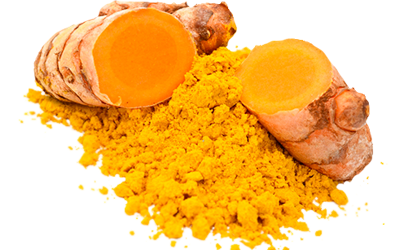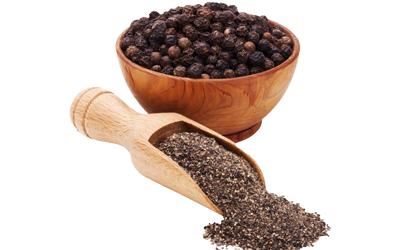
The Science-Backed Benefits of Turmeric: A Comprehensive Guide
Turmeric, often referred to as the "golden spice," has been used for centuries in Ayurvedic and traditional medicine. Modern science now supports many of its health claims, making it a popular natural remedy. In this blog, we explore the science-backed benefits of turmeric, its active compounds, how it works in the body, the best ways to consume it, and much more.
1. What is Turmeric?
Turmeric (Curcuma longa) is a bright yellow-orange spice derived from the root of a flowering plant in the ginger family. It is native to Southeast Asia and is a staple in Indian cuisine, particularly in curry dishes.
Key Active Compounds in Turmeric
The primary bioactive compound in turmeric is curcumin, which is responsible for most of its medicinal properties. Other important compounds include:
- Curcuminoids (anti-inflammatory and antioxidant agents)
- Turmerones (support brain health)
- Vitamins & Minerals (Vitamin C, Vitamin E, potassium, iron, and manganese)
2. Science-Backed Health Benefits of Turmeric
1. Powerful Anti-Inflammatory Effects
Chronic inflammation is linked to many diseases, including heart disease, cancer, and Alzheimer’s. Curcumin is a potent anti-inflammatory compound that works similarly to some pharmaceutical drugs—without the side effects.
2. Strong Antioxidant Properties
Oxidative damage contributes to aging and diseases. Curcumin neutralizes free radicals and boosts the body’s own antioxidant enzymes.
3. May Improve Brain Function & Lower Alzheimer’s Risk
Curcumin increases Brain-Derived Neurotrophic Factor (BDNF), a growth hormone that helps brain cells regenerate. Studies suggest it may delay or reverse brain diseases like Alzheimer’s.
4. Supports Heart Health
Turmeric improves endothelial function, reduces inflammation, and lowers LDL cholesterol, reducing the risk of heart disease.
5. May Help Prevent (and Possibly Treat) Cancer
Research shows curcumin can reduce angiogenesis (growth of new blood vessels in tumors) and metastasis (spread of cancer). It may also help in chemotherapy resistance.
6. Eases Arthritis Symptoms
Due to its anti-inflammatory effects, turmeric is as effective as some anti-inflammatory drugs in relieving joint pain and stiffness in osteoarthritis and rheumatoid arthritis.
7. Aids Digestion & Gut Health
Turmeric stimulates bile production, helping with fat digestion. It also supports gut microbiota balance and may help with IBS and ulcerative colitis.
8. Supports Liver Detoxification
Curcumin enhances liver detox enzymes and protects against liver damage caused by toxins.
9. May Help with Depression
Studies suggest curcumin can boost serotonin and dopamine, improving mood and acting as a natural antidepressant.
10. Promotes Skin Health
Turmeric’s anti-inflammatory and antimicrobial properties help with acne, eczema, psoriasis, and wound healing.
3. How Does Turmeric Work in the Body?
- Absorption Issue: Curcumin is poorly absorbed into the bloodstream.
- Solution: Consuming it with black pepper (piperine) enhances absorption by 2000%.
- Fat Solubility: Curcumin is fat-soluble, so taking it with healthy fats (coconut oil, ghee, olive oil) improves bioavailability.
4. Best Time to Take Turmeric
- Morning: Boosts metabolism and immunity.
- Post-Meal: Aids digestion.
- Night (with warm milk): Promotes relaxation and better sleep.
5. How to Take Turmeric for Maximum Benefits
1. Turmeric with Warm Milk (Golden Milk)
- A traditional Ayurvedic remedy for immunity and relaxation.
- 1 cup milk (or plant-based milk)
- ½ tsp turmeric powder
- A pinch of black pepper
- ½ tsp cinnamon (optional)
- 1 tsp honey (optional)
Recipe:
2. Turmeric Tea:
Recipe:
3. Turmeric with Healthy Fats
4. Turmeric Supplements
6. Is Turmeric Water-Soluble?
No, curcumin is fat-soluble, meaning it dissolves in fats/oils rather than water. For better absorption, always consume it with fats (like milk or oil) and black pepper.
7. Potential Side Effects & Precautions
- High doses may cause digestive issues.
- Blood-thinning effect: Avoid before surgery or if on blood thinners.
- Gallbladder issues: May worsen gallbladder problems.
- Pregnancy: Consult a doctor before high intake.
Final Thoughts
Turmeric is a powerful natural remedy with proven anti-inflammatory, antioxidant, and disease-fighting properties. For best results, consume it with black pepper and healthy fats, and consider supplements if needed. Whether in golden milk, tea, or meals, turmeric can significantly enhance your health when used correctly.
Important Notice: The information provided in this article is for educational and informational purposes only and is not intended as medical advice. Turmeric (curcumin) may interact with medications or health conditions. Always speak with a qualified healthcare provider before using turmeric as a supplement.
⚠️ Warning:
By continuing to read this article, you acknowledge that the author and publisher are not liable for any direct, indirect, or consequential effects resulting from the use of this information.
Disclosure: As an Amazon Associate, We earn from qualifying purchases at no extra cost to you. Product prices and availability are accurate as of the date/time indicated and are subject to change.
Lactic Acid
HERE
LEAVE A REPLY
Your email address will not be published. Required fields are marked *
Fast Delivery
Across West & East India
safe payment
100% Secure Payment
Online Discount
Add Multi-buy Discount
Help Center
Dedicated 24/7 Support
Curated items
From Handpicked Sellers





LEAVE A COMMENTs
Susanna John
"I’ve heard so much hype about turmeric. Does it really work for arthritis pain? My doctor says evidence is mixed. Would love to see more studies linked here."
Rose T John
"Wow, I had no idea turmeric was this powerful! The science-backed details on curcumin absorption (especially the black pepper tip) blew my mind. Already made golden milk tonight—thanks for the recipe!"
Patricia Matthew
"Turmeric tea saved my digestion! I’ve had IBS for years, and after 3 weeks of daily turmeric + ginger tea, my bloating is gone. Everyone’s different, but it’s worth a try"